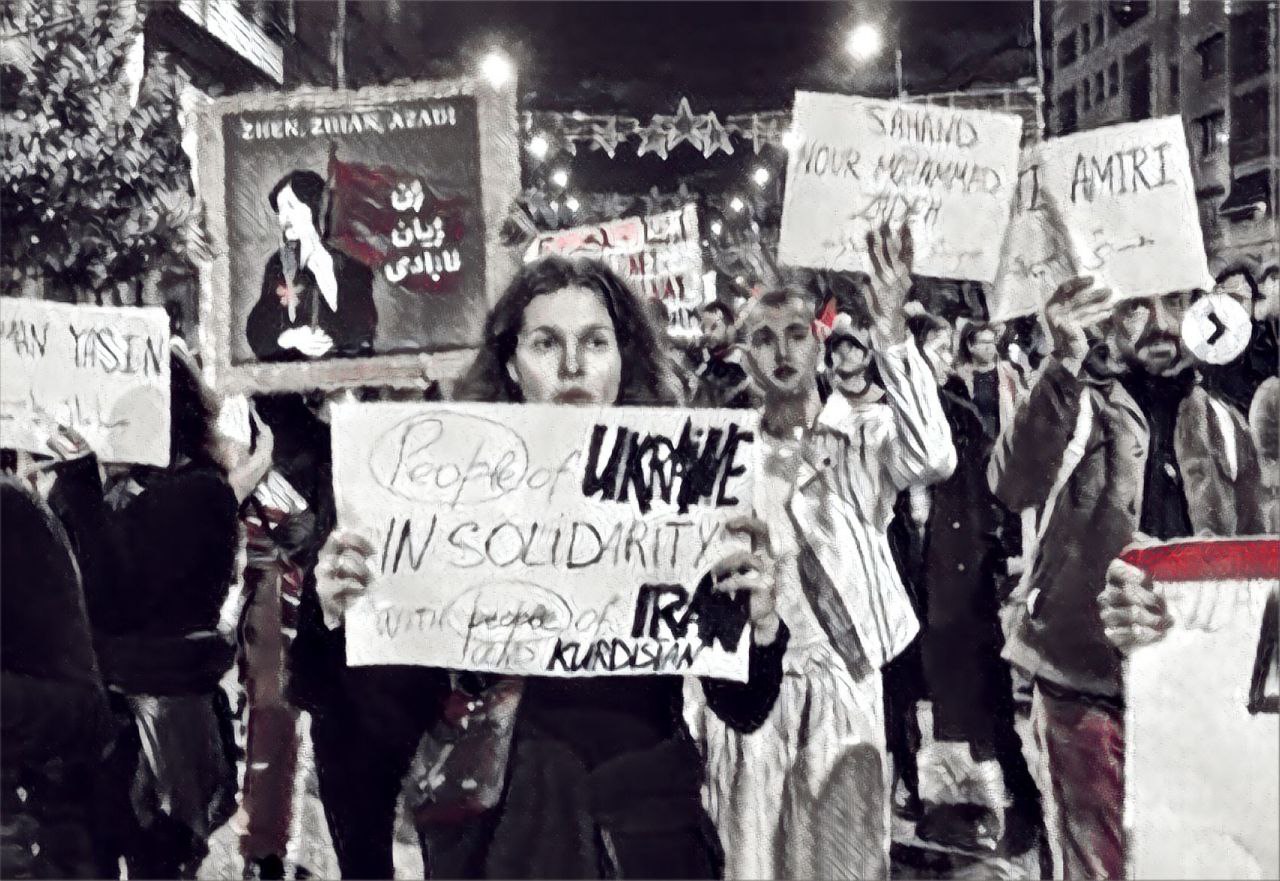Yuliia, a Ukrainian activist, recently had a challenging encounter with some Greek leftists. We met last summer and had interesting conversation and sharing thoughts about the global left. We shared this point that it is crucial for the left to recognize the complexities of political situations in countries like Russia, Ukraine, and Iran, and not fall into the trap of blindly supporting regimes that claim to be anti-imperialist. The left must acknowledge that there can be authoritarian and oppressive regimes that are not aligned with the West.
However, despite her frustrations and anger at their uninformed views on the political situation in Ukraine, she didn’t give up on the power of empathy and solidarity. Instead, she turned to the revolutionary potential of psychoanalysis to heal traumas and build connections.
In her experience, psychoanalysis offers a way to analyze ourselves and understand our own biases and blind spots. By doing so, we can better listen to and support others, even in difficult and contentious situations. The metaphor of Babylon, she notes, captures the struggles we face in effectively communicating and connecting with each other. However, with the tools of psychoanalysis, we can bridge those gaps and build meaningful relationships.
The Greek Left has long been plagued by narrow anti-Americanism that has replaced genuine anti-imperialism, resulting in a widening gap between Greek Leftists and leftist dissidents from countries perceived as “anti-imperialist.” This ideological dogmatism has led to cases of physical attacks against those who disagree with the pro-Putinist, pro-Mullah propaganda that some Leftists support.
While this trend may seem milder in the case presented below, it is still indicative of a refusal to listen to those who have lived under the boot of supposed “anti-imperialist” regimes. Leftists have placed greater hope for social change on foreign geopolitical powers rather than the potentials of popular self-determination and self-emancipation. This is a drastic counter-revolutionary regression towards Stalinist type of thinking that can only nurture authoritarian logics.
This loss of trust in the abilities of common people to self-organize and initiate revolutionary change is worrying. It creates a gap between the Greek Left and those seeking refuge from oppressive regimes, and perpetuates authoritarian logics rather than promoting genuine anti-imperialism. The Greek Left must reconsider its dogmatic approach and prioritize the potentials of popular self-determination and self-emancipation to create meaningful social change.
Yuliia’s story also highlights the importance of mental space in expressing empathy and solidarity. In psychoanalytic terms, the concept of the mother’s gaze emphasizes the role of positive reinforcement and empathy in developing a sense of self-worth and self-reliance. By creating a mental space for empathy and solidarity to be expressed, we can foster healing and connection.
Despite the challenges she faced, Yuliia remains hopeful that empathy and solidarity can overcome the traumas of aggression and misunderstanding. She emphasizes that support for those fighting on the frontlines and resisting in Ukraine is crucial. By using psychoanalysis as a tool for building connections and understanding, we can create a more nuanced and empathetic understanding of complex political situations and support those who need it most.
This is Yuliia’s text on her Instagram:
Do you believe in the revolutionary power of psychoanalysis? I increasingly recognize its potential, especially through real-life connections outside of work. While I am not religious, the metaphor of Babylon feels relevant to the struggles we face in effectively connecting and communicating with each other.
Recently, I had the opportunity to connect with some Greek leftists in person (IRL), and our conversations were mixed. One discussion was relatively positive, with most agreeing that war is unfair and that Ukrainian people are heroes. However, another group held an absurd and frustratingly uninformed view of the political situation. I listened to their gaslighting and dismissal of Ukrainian people for over two hours before finally speaking up during the Q&A session. My husband and I aimed to shed light on the situation’s complexities and stress the importance of supporting the resistance, but our voices were silenced, met with hostility, and accused of fascism.
Despite feeling frustrated and angry at that moment, the experience ultimately led to something positive. We recorded the encounter, and when the former Greek minister of finance called Artem a fascist, the video caught people’s attention. Artem went on to write an excellent piece for the British magazine Freedomnews, and we received support from leftists who recognized the need for a more nuanced understanding of the situation in Ukraine. It was heartening to see that empathy and solidarity can fuel healing from the traumas of aggression and misunderstanding.
I would love to see this support delivered to those fighting on the frontlines and resisting in Ukraine. This is where psychoanalysis comes into play. The concept of the mother’s gaze in psychoanalysis emphasizes the importance of positive reinforcement and empathy in developing a sense of self-worth and self-reliance. Mental space is crucial for empathy and solidarity to be expressed. I believe that all of us need to analyze ourselves to be able to hear and support the others.
.








